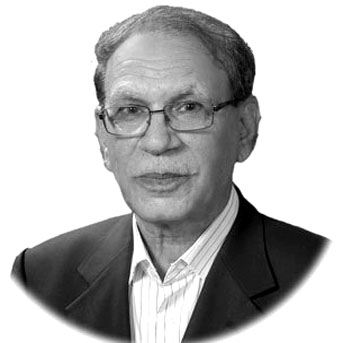Mohammad Jamil
UNREST gripped the valley since the martyrdom
of freedom fighter Riaz Naikoo earlier this month
in Pulwama, who had taken over command after the shahadat of Burhan Wani in 2016. Violence once again erupted in Indian-occupied Kashmir last week, as Indian forces gunned down Junaid Ashraf Sehrai, a business graduate, what they said, after the gun fight that continued for 12 hours. According to residents, Indian soldiers set houses on fire and looted jewellery from several residences under the cover of the operation. Kashmiris are facing repression, oppression and atrocities committed by Indian security forces for decades, and now they are fighting back to stop India’s brutality. Wani’s death had triggered massive protests in the IoK, which is a disputed territory, as UNSC resolutions gave the Kashmiris to decide their future through plebiscite to be held under the aegis of the UN.
Naikoo was shot dead in his home village of Beigh Pora in Pulwama district after militants killed eight security personnel in two separate attacks, part of a recent surge of violence in India-occupied Kashmir. Today, they are also protesting India’s engineered demographic changes; and instead of addressing their concerns, Indian government’s callousness has further angered educated young Kashmiris. Yet the Indian Establishment seems to cling to the erroneous belief that its use of violence will break the will of the Kashmiris that are fighting for their rights. Some voices have been raised against India’s brutality in occupied Kashmir. The OIC, though belatedly, has expressed concern over India’s change of Kashmir’s domicile law, which would pave the way for non-locals to apply for domicile in the disputed region. This is, of course, part of New Delhi’s overall strategy to alter the demographics of the IoK.
According to Indian government version, at least 76 militants including Naikoo were killed since January this year. But they admit having lost 20 soldiers including senior army and police officers, a security official told BBC Urdu on condition of anonymity. Under a new policy, militants who are killed are not identified and their bodies are not handed over to their families. Officials had accused Riyaz Naikoo of plotting attacks against the security establishment in the valley. In August 2019, the Indian government stripped the region of its semi-autonomous status and split it into two federally-run territories. Thousands of people were detained and the region remains under severe security restrictions, as thousands of Kashmiri men, women and children took to the streets to protest against Indian brutalities to let the world community know that they reject illegal Indian occupation and want independence from Indian yoke.
“The intensified resistance in IoJ&K is a direct consequence of Indian campaign of oppression and brutalization of Kashmiris. We also categorically reject, once again, the baseless Indian allegations of “infiltration”, which are designed to divert attention from India’s grave human rights violations in IoJ&K and to create a pretext for false flag operation,” maintained the Foreign Office. Pakistan rejected fresh infiltration allegations by India following the killing of five army troops in a militant attack in India-occupied Kashmir two weeks ago. Terming the allegations baseless, Prime Minister Imran Khan accused New Delhi of trying to find a pretext for a false flag operation, about which he has been warning the world. It is now more than eight months that Narendra Modi’s Hindu nationalist government illegally and unconstitutionally stripped India-occupied Kashmir of its special status.
A total information blockade has been in place in the IoK ever since the repeal of Article 370, which guaranteed the disputed territory its special status was announced. Days before the hubristic move, thousands of additional Indian forces were dispatched to the region to reinforce the tens of thousands of troops already stationed there. In doing so, the Modi Government had just one objective: to muzzle the voice of the Kashmiris by all imaginable means, no matter how brutal or inhuman. It doesn’t want the world to see its draconian and tyrannical measures and it doesn’t want the simmering cauldron of rage among the Kashmiris boil over. From the first handful of new footages and reports from the region, it appeared that Modi’s move to change the citizenship laws and to stamp subservience on the Kashmiris was beginning to blow back.
But as New Delhi chanted all is well while deliberately preventing the leaking of any information from the IoK to the outside world, foreign media representatives decried the restrictions that prevented them from independently verifying facts on the ground in the disputed region. According to a report by Indian news publication. The print, only two foreign journalists were allowed permission to visit IoK in the last seven months of 2018. It added that while many foreign journalists applied for permits, the Indian government appeared to be sitting on them without explanation. The limited media presence that managed to reach out to Kashmiri voices in IoK revealed their resentment was higher than ever. Even India’s NDTV news channel was unwittingly forced to admit that the situation in IoK threatened to run out of New Delhi’s control.
“I have been struggling to find a person here in the valley who sides with India today,” an NDTV correspondent told a shocked anchor during a live broadcast. “Politics in Kashmir has changed forever. The narrative has changed forever,” he stressed. A BBC correspondent who managed to travel around IoK for two days narrated how the Kashmiris felt they had been reduced to living inside an open-air jail. “This is extreme thuggery… You lock us up during the day, you lock us up at night,” she quoted an elderly Kashmiri man as saying. He said he was willing to pick up the gun and fight the occupiers.
—The writer is a senior journalist based in Lahore.










